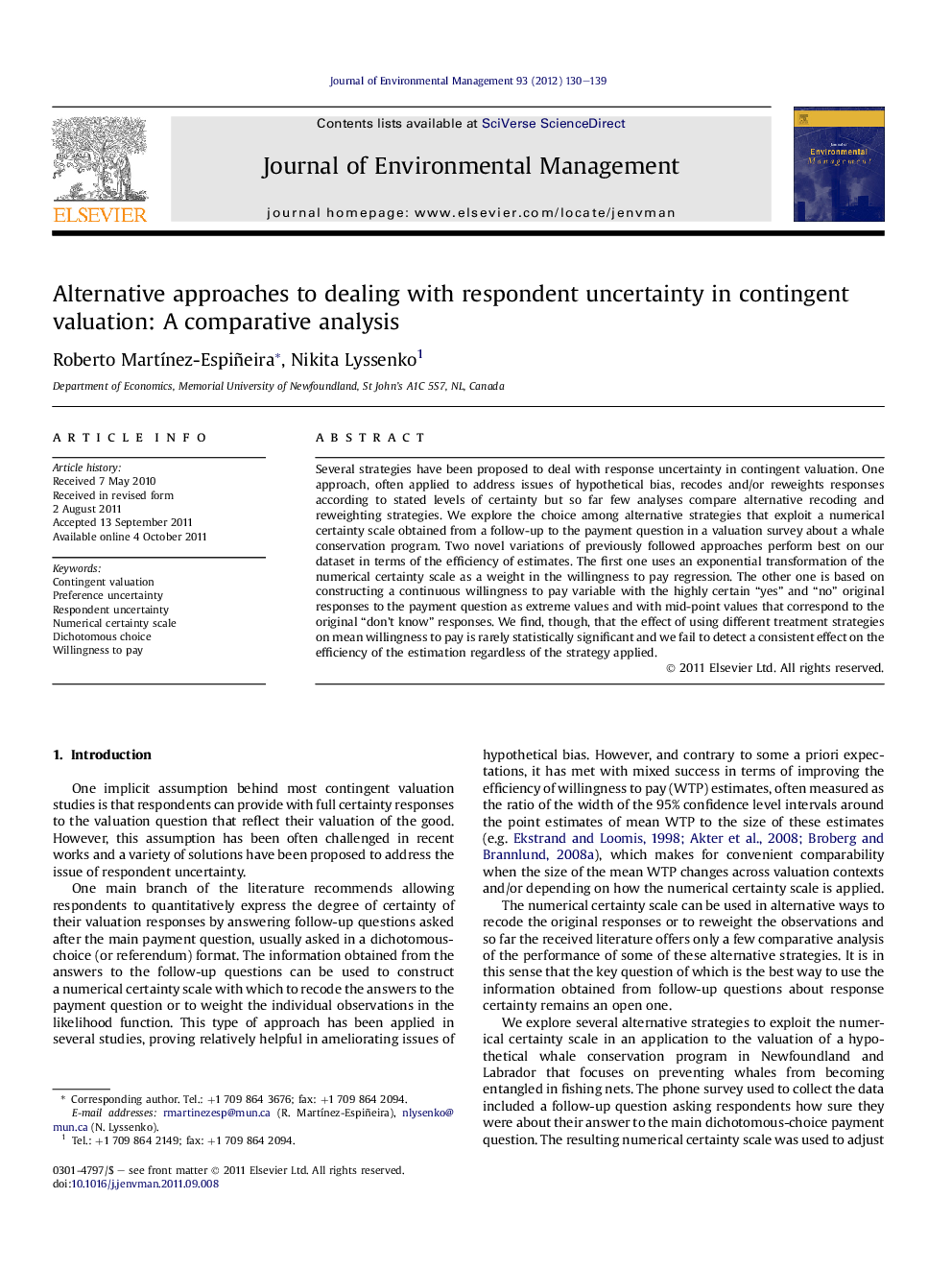| Article ID | Journal | Published Year | Pages | File Type |
|---|---|---|---|---|
| 1056974 | Journal of Environmental Management | 2012 | 10 Pages |
Several strategies have been proposed to deal with response uncertainty in contingent valuation. One approach, often applied to address issues of hypothetical bias, recodes and/or reweights responses according to stated levels of certainty but so far few analyses compare alternative recoding and reweighting strategies. We explore the choice among alternative strategies that exploit a numerical certainty scale obtained from a follow-up to the payment question in a valuation survey about a whale conservation program. Two novel variations of previously followed approaches perform best on our dataset in terms of the efficiency of estimates. The first one uses an exponential transformation of the numerical certainty scale as a weight in the willingness to pay regression. The other one is based on constructing a continuous willingness to pay variable with the highly certain “yes” and “no” original responses to the payment question as extreme values and with mid-point values that correspond to the original “don’t know” responses. We find, though, that the effect of using different treatment strategies on mean willingness to pay is rarely statistically significant and we fail to detect a consistent effect on the efficiency of the estimation regardless of the strategy applied.
► We investigate the effect of incorporating response uncertainty in contingent valuation studies. ► We recode and/or reweight responses according to a numerical certainty scale. ► Two novel variations of previously followed approaches perform best on our dataset. ► Effect of different strategies on mean willingness to pay is rarely statistically significant. ► We fail to detect a consistent effect on estimation efficiency regardless of the strategy applied.
